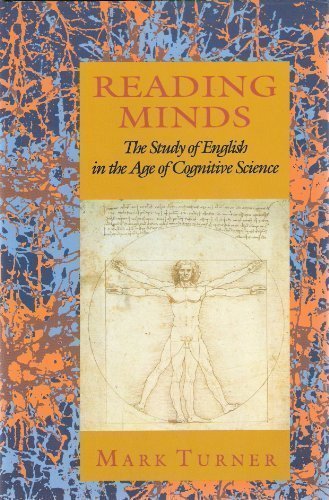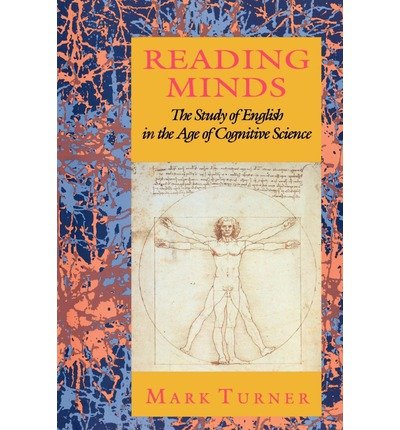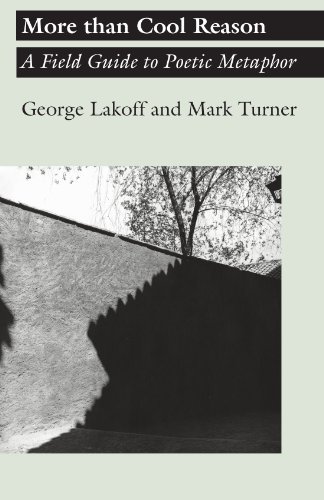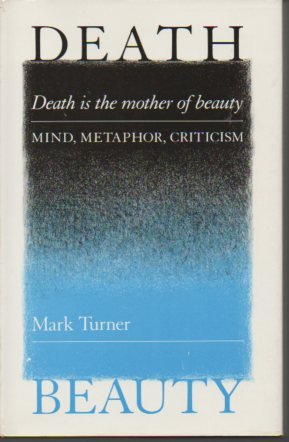Background
Turner, Mark Bernard was born on March 24, 1954 in Kingville, Texas, United States. Son of James Lloyd and Dell Turner.



( The great adventure of modern cognitive science, the di...)
The great adventure of modern cognitive science, the discovery of the human mind, will fundamentally revise our concept of what it means to be human. Drawing together the classical conception of the language arts, the Renaissance sense of scientific discovery, and the modern study of the mind, Mark Turner offers a vision of the central role that language and the arts of language can play in that adventure.
http://www.amazon.com/gp/product/0691068976/?tag=2022091-20

(Drawing together the classical conception of the language...)
Drawing together the classical conception of the language arts, the Renaissance sense of scientific discovery, and the modern study of the mind, this title offers a vision of the central role that language and the arts of language can play in the great adventure of modern cognitive science, the discovery of the human mind.
http://www.amazon.com/gp/product/B00F3ZH5TG/?tag=2022091-20

( "The authors restore metaphor to our lives by showing u...)
"The authors restore metaphor to our lives by showing us that it's never gone away. We've merely been taught to talk as if it had: as though weather maps were more 'real' than the breath of autumn; as though, for that matter, Reason was really 'cool.' What we're saying whenever we say is a theme this book illumines for anyone attentive." — Hugh Kenner, Johns Hopkins University "In this bold and powerful book, Lakoff and Turner continue their use of metaphor to show how our minds get hold of the world. They have achieved nothing less than a postmodern Understanding Poetry, a new way of reading and teaching that makes poetry again important." — Norman Holland, University of Florida
http://www.amazon.com/gp/product/0226468127/?tag=2022091-20

(In this book, Mark Turner shows that the languages of lit...)
In this book, Mark Turner shows that the languages of literature and everyday life are different expressions of the same universal mechanisms of the mind. Drawing on the languages and metaphors of kinship and causation, and on myriad examples in English literature from Chaucer to Wallace Stevens, he argues convincingly that all our thinking with language depends on a restricted range of deep metaphors and inference patterns.
http://www.amazon.com/gp/product/0226817210/?tag=2022091-20

(We usually consider literary thinking to be peripheral an...)
We usually consider literary thinking to be peripheral and dispensable, an activity for specialists: poets, prophets, lunatics, and babysitters. Certainly we do not think it is the basis of the mind. We think of stories and parables from Aesop's Fables or The Thousand and One Nights, for example, as exotic tales set in strange lands, with spectacular images, talking animals, and fantastic plots--wonderful entertainments, often insightful, but well removed from logic and science, and entirely foreign to the world of everyday thought. But Mark Turner argues that this common wisdom is wrong. The literary mind--the mind of stories and parables--is not peripheral but basic to thought. Story is the central principle of our experience and knowledge. Parable--the projection of story to give meaning to new encounters--is the indispensable tool of everyday reason. Literary thought makes everyday thought possible. This book makes the revolutionary claim that the basic issue for cognitive science is the nature of literary thinking. In The Literary Mind, Turner ranges from the tools of modern linguistics, to the recent work of neuroscientists such as Antonio Damasio and Gerald Edelman, to literary masterpieces by Homer, Dante, Shakespeare, and Proust, as he explains how story and projection--and their powerful combination in parable--are fundamental to everyday thought. In simple and traditional English, he reveals how we use parable to understand space and time, to grasp what it means to be located in space and time, and to conceive of ourselves, other selves, other lives, and other viewpoints. He explains the role of parable in reasoning, in categorizing, and in solving problems. He develops a powerful model of conceptual construction and, in a far-reaching final chapter, extends it to a new conception of the origin of language that contradicts proposals by such thinkers as Noam Chomsky and Steven Pinker. Turner argues that story, projection, and parable precede grammar, that language follows from these mental capacities as a consequence. Language, he concludes, is the child of the literary mind. Offering major revisions to our understanding of thought, conceptual activity, and the origin and nature of language, The Literary Mind presents a unified theory of central problems in cognitive science, linguistics, neuroscience, psychology, and philosophy. It gives new and unexpected answers to classic questions about knowledge, creativity, understanding, reason, and invention.
http://www.amazon.com/gp/product/019512667X/?tag=2022091-20
Turner, Mark Bernard was born on March 24, 1954 in Kingville, Texas, United States. Son of James Lloyd and Dell Turner.
Bachelor in English, University of California, Berkeley, 1974; Bachelor in Mathematics, Master of Arts in English, University of California, Berkeley, 1978; Master of Arts in Mathematics, University of California, Berkeley, 1979; Doctor of Philosophy in English Language and Literature, University of California, Berkeley, 1983.
He is Institute Professor and Professor of Cognitive Science at Case Western Reserve University. Turner and Gilles Fauconnier founded the theory of conceptual blending, presented in textbooks and encyclopedias. Turner is also the director of the Cognitive Science Network (Consejo de Seguridad Nuclear) and co-director of the Distributed Little Red Hen Laboratory
(Why are we so innovative? Where do new ideas come from? W...)
(What will be the future of social science? Where exactly ...)
(Drawing together the classical conception of the language...)
(Our understanding of the nature and processing of figurat...)
( For more than a decade, Clear and Simple as the Truth h...)
(In this book, Mark Turner shows that the languages of lit...)
( The great adventure of modern cognitive science, the di...)
( The great adventure of modern cognitive science, the di...)
(We usually consider literary thinking to be peripheral an...)
(Guides readers to consider style not as an elegant access...)
( "The authors restore metaphor to our lives by showing u...)
Married Megan Milar Whalen, June 20, 1987. Children: John, Donald, William.
